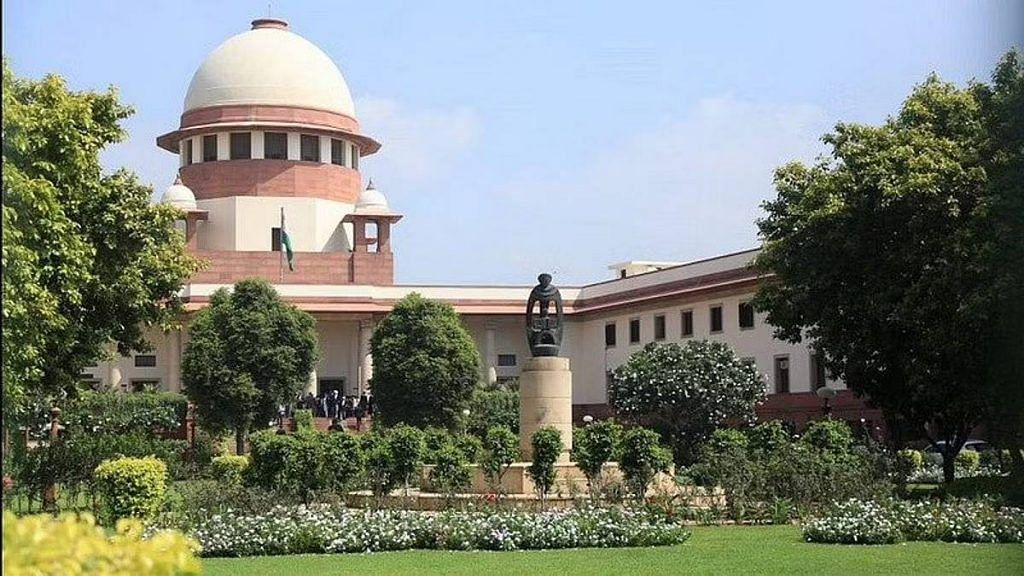New Delhi: The Supreme Court Friday expressed “grave concern” over the delay on the central government’s part to notify the transfer of 10 judges that were recommended in September and November last year.
The two-judge bench of Justices Sanjay Kishan Kaul and Abhay S. Oka said that the transfer of a judge is done in the interest of the administration of justice and that exceptions apart, there is no reason for any delay (by the government) as it has a very limited role to play.
“To keep them pending sends a very wrong signal. In the sense, it indicates that other factors are coming to play. This is unacceptable to the collegium,” Justice Kaul told Attorney General (AG) R. Venkataramani while hearing a batch of petitions on the delayed appointment of High Court judges.
The AG responded that he too “feels very strongly about it. I have taken note of this”.
During the hearing, the apex court sought to know the status of proposals sent by the Supreme Court Collegium regarding the elevation of five high court judges as SC judges, appointment of judges to Rajasthan HC, and on transfer of HC judges.
The SC Collegium is an apex appointment body for judges and is headed by the Chief Justice of India (CJI). For HC appointments, it comprises the two senior-most judges after the CJI and for elevations to the apex court, four senior-most judges in the hierarchy are part of this panel. Justice Kaul is the senior-most member of the collegium for both appointments.
In response, the AG told the bench that “all efforts are being made to conform to timelines” set by the top court.
He added that “some recent recommendations (around 104) sent by the high courts are being processed” and that “about 44 of those will be cleared probably by Saturday or this weekend”.
Venkataramani said that he is “personally looking into not the names, but the process” to ensure there is no “dimension of deviation”.
The bench also advised the government to ignore a prospective candidate’s past political affiliations or their association with a particular type of case. “As a lawyer one has to argue for his or her client. But when one becomes a judge, you lose many colours and you are here to do a job, train yourself to do a job independently,” Justice Kaul said.
He added a court must reflect different philosophies and gave the example of former Supreme Court judge Justice Krishna Iyer, whose contribution to the bench was “outstanding.” “Look where he came from,” the judge said, referring to his past association with the CPI(M).
The first qualification for an advocate aspiring to become a judge should be his integrity and not his affiliation when he was in the bar, Justice Kaul added.
Also Read: Indian judiciary’s well-being is at stake. Conflicts over collegium system can create tension
Due process followed
Even as the bench gave time to the AG to revert on matters related to the appointment of SC judges and chief justices of HCs, it spoke at length on the issue of transfer of judges, which the court described as a “matter of great importance.”
The recommendations to transfer 10 judges were made in two batches. While the transfer of two was suggested at the end of September, eight proposals were sent to the government towards the end of November.
One of the transfers relates to that of Justice S. Muralidhar, who is currently the Chief Justice of the Orissa High Court. The SC collegium proposes that he be transferred to the Madras High Court.
In the written order, the bench said that a transfer is recommended after following due process which includes seeking comments from the consultee judge in the Supreme Court who belongs to the same HC to where the judge who is being transferred is serving.
Opinions are also taken from the chief justice of the HC where the judge is being transferred as well as from the chief justice of the HC from where they are being transferred, it noted.
Comments are also obtained from the judges concerned and their request to assign an alternative HC, other than the one suggested by the SC Collegium, is also looked into, it added.
Also Read: Decoding SC’s majority ruling on lawmakers’ freedom of speech — ‘govt can’t be held liable’
Fallout of delays
With regard to the delay in clearing names sent for elevation to the SC, the bench remarked it is likely to create a corresponding delay in recommending names to replace these candidates in their respective high courts.
The written order said, “So far as recommendations of three Chief Justices are concerned, AG says he is looking into it personally.”
Fixing the matter for a further hearing on 3 February, the bench once again flagged the fallouts of delayed appointments and told the AG it has led to “meritorious lawyers not giving their consent to become judges”.
“Names cleared by us are put on the website and then it is not cleared. It has some impact,” Justice Oka told the AG. Justice Kaul added that one of the candidates withdrew because there was “a delay with the Centre and another withdrew because it was pending with collegium”.
The bench said the government cannot sit on collegium proposals without any decision for fear that the collegium will reiterate the recommendation even if the file is sent back.
With regard to the 22 names sent back by the government, Justice Kaul told the petitioners that the collegium will look into it. “Once we reiterate I don’t see any problem in clearing the appointment,” he asserted.
(Edited by Theres Sudeep)
Also Read: Parliamentary panel calls for social diversity in judiciary, higher retirement age of HC judges
